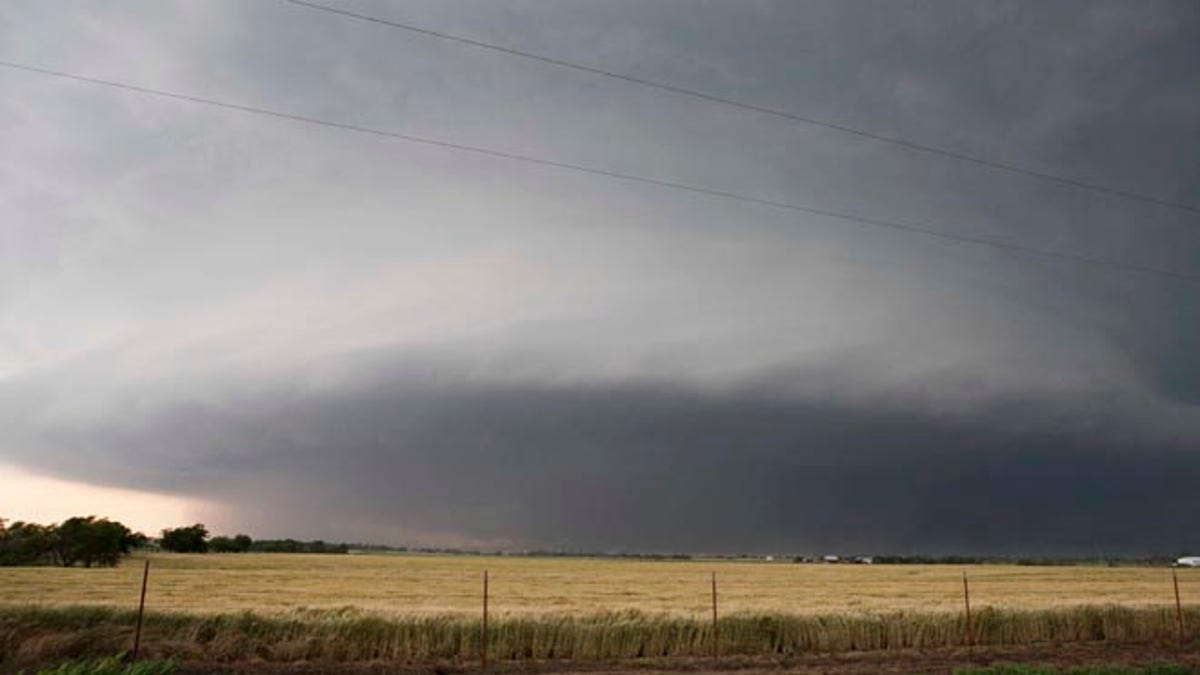
May 31, 2013: In this file photo a tornado forms near Banner Road and Praire Circle in El Reno, Okla. The National Weather Service says the deadly tornado that struck near Oklahoma City late last week was another top-of-the-scale EF5 that packed winds reaching 295 mph. (AP)
OKLAHOMA CITY – The deadly tornado that struck near Oklahoma City late last week had a record-breaking width of 2.6 miles and was the second top-of-the-scale EF5 twister to hit the area in less than two weeks, the National Weather Service reported Tuesday.
The weather service initially rated the Friday tornado that hit El Reno as an EF3. But the agency upgraded the ranking after surveying damage from the twister, which along with subsequent flooding killed 18 people. The weather service determined that the storm packed winds reaching 295 mph.
The update means the Oklahoma City area has seen two of the extremely rare EF5 tornadoes in only 11 days. The other hit Moore, a city about 25 miles away from El Reno, on May 20, killing 24 people and causing widespread damage.
But Friday's massive tornado avoided the highly populated areas near and around Oklahoma City, and forecasters said that likely saved lives. When the winds were at their most powerful, no structures were nearby, said Rick Smith, chief warning coordination meteorologist for the weather service's office in Norman.
"Any house would have been completely swept clean on the foundation. That's just my speculation," Smith said. "We're looking at extremes ... in the rare EF5 category. This in the super rare category because we don't deal with things like this often."
El Reno Mayor Matt White said that while his city of 18,000 residents suffered significant damage -- including its vocational-technical center and a cattle stockyard that was reduced to a pile of twisted metal -- he said it could have been much worse had the violent twister tracked to the north.
"If it was two more miles this way, it would have wiped out all of downtown, almost every one of our subdivisions and almost all of our businesses," White said. "It would have taken out everything.
"It's very scary ... I don't think a normal person can fathom just how scary. I don't think they realize how lucky El Reno was."
The EF5 storm that hit Moore decimated neighborhoods. In Friday's storm, many of the deaths were caused by heavy flash flooding following the storms. Three storm chasers died in that storm.
Smith said the storm's 2.6-mile path -- besting a record set in 2004 in Hallam, Neb. -- would have made the storm hard to recognize up close.
"A two-and-a-half mile wide tornado would not look like a tornado to a lot of people," Smith said.

